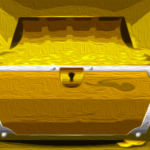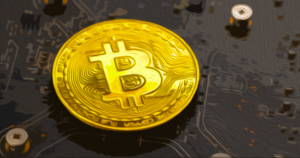
The anticipated approval of bitcoin exchange-traded funds (ETFs) by the U.S. Securities and Exchange Commission (SEC) and Nigeria's decision to lift restrictions on the crypto industry are expected to reignite interest in cryptocurrencies among African users. Additionally, the upcoming Bitcoin halving event in April 2024 is likely to play a crucial role in shaping the trajectory of the leading cryptocurrency in the coming year.
Nigeria's New Stance on Crypto Bodes Well for Africa
After a challenging first half of the year marked by startup failures and increased regulatory scrutiny, the crypto and blockchain industry in Africa is poised to start 2024 with renewed optimism. Nigeria, in particular, stands out as a country where this renewed optimism is most evident.
Since the appointment of Olayemi Cardoso as the new governor of the Central Bank of Nigeria (CBN) in June, the bank has adopted a more conciliatory approach and abandoned some of the controversial policies of its predecessor. From the devaluation of the local currency to the removal of restrictions on the use of foreign currency, the CBN has been gradually moving away from the regulations put in place during the previous administration of Godwin Emefiele.
However, the most significant decision made by the CBN under Cardoso's leadership was the recent lifting of the crypto asset-related restrictions imposed in February 2021. This move has been widely celebrated by Nigerian crypto and blockchain influencers, who believe that it not only benefits Nigeria but also has a positive impact on the entire African continent.
Ophi Rume, the executive secretary of the Stakeholders in Blockchain Technology Association of Nigeria (SIBAN), expressed his excitement about the CBN's decision, stating that it opens up opportunities for innovators from other parts of Africa. He emphasized Nigeria's influential role in the adoption of emerging technologies like cryptocurrency and blockchain across the continent.
Southern African Countries Seize the Initiative in 2023
In Kenya, the largest economy in East Africa and one of the top five crypto markets in Africa, the crackdown on Worldcoin was seen as a low point for the crypto industry in the region. However, there are indications that the government's stance may change, as reports suggest that Worldcoin will be allowed to resume its activities in early 2024. Additionally, the Kenyan parliament has taken steps to enable the taxation of the country's crypto holders.
In South Africa, one of the largest crypto markets in Africa, authorities have been working on establishing a regulatory framework for virtual asset service providers (VASPs). Over 90 entities have submitted their applications for licenses to operate as VASPs, signaling progress in this area.
Angola's passage of a crypto law towards the end of the year and Zimbabwe's launch of Africa's first gold-backed digital currency in May are also important milestones that contribute to the positive outlook for the industry in the region.
Bitcoin Halving and the ETF Mania
While these developments are significant for the African crypto industry, many believe that the approval of spot Bitcoin ETFs by the SEC will be the catalyst for another bull run and a wave of capital inflows.
Shaheer Karrim, the co-founder of Mzansi Web3 ICP Hub, anticipates that the approval of ETFs will have a trickle-down effect in African countries, generating more interest in the underlying technology. However, Karrim also warns that high-level institutions like Blackrock may seek to control the narrative or even the top cryptocurrency itself.
Ivaibi Festo, the founder of Mitroplus Labs, agrees that spot Bitcoin ETFs will set the tone for the new year. However, Festo believes that the Bitcoin halving event in April 2024 will be pivotal in determining the trajectory of the leading cryptocurrency in 2024.
Nathaniel Luz, the founder of Flincap, believes that the approval of Bitcoin ETFs will bring legitimacy to the crypto industry and help restore users' trust, especially after the collapse of FTX and Luna. Luz also highlights the impact of regulations in first-world countries on other countries' regulations, which is of interest to African crypto users.
In conclusion, the anticipated approval of Bitcoin ETFs and Nigeria's new stance on crypto are expected to drive the revival of the crypto industry in Africa. Alongside these developments, the upcoming Bitcoin halving event will likely play a crucial role in shaping the industry's trajectory in the coming year. Exciting times lie ahead for the African crypto and blockchain industry.
Frequently Asked Questions
What are the benefits to having a gold IRA
The best way to save money for retirement is to place it in an Individual Retirement Account. It is tax-deferred until it's withdrawn. You can decide how much money you withdraw each year. There are many types to choose from when it comes to IRAs. Some are better suited for people who want to save for college expenses. Others are designed for investors looking for higher returns. Roth IRAs, for example, allow people to contribute after they turn 59 1/2. They also pay taxes on any earnings when they retire. However, once they begin withdrawing funds, these earnings are not taxed again. This type of account might be a good choice if your goal is to retire early.
Because it allows you money to be invested in multiple asset classes, a ‘gold IRA' is similar to any other IRAs. Unlike a regular IRA that requires you to pay taxes on the gains you make while you wait to access them, a gold IRA does not have to do this. This makes gold IRA accounts a great choice for those who want their money to be invested, not spent.
You can also enjoy automatic withdrawals, which is another benefit of owning your gold through an IRA. It means that you don’t have to remember to make deposits every month. To avoid missing a payment, direct debits can be set up.
Gold is one of today's most safest investments. It is not tied to any country so its value tends stay steady. Even in economic turmoil, gold prices tends to remain relatively stable. Therefore, gold is often considered a good investment to protect your savings against inflation.
Should You Open a Precious Metal IRA?
It is essential to be aware of the fact that precious metals do not have insurance coverage before opening an IRA. There are no ways to recover the money you lost in an investment. This includes investments that have been damaged by fire, flooding, theft, and so on.
You can protect yourself against such losses by purchasing physical gold and silver coins. These coins have been around for thousands and represent a real asset that can never be lost. If you were to sell them today, you would likely receive more than what you paid for them when they were first minted.
When opening an IRA account, make sure you choose a reputable company offering competitive rates and high-quality products. A third-party custodian is a good option. They will protect your assets while giving you easy access whenever you need them.
You won't get any returns until you retire if you open an account. Do not forget about the future!
What are the pros and disadvantages of a gold IRA
An Individual Retirement account (IRA) is a better option than regular savings accounts in that interest earned is exempted from tax. An IRA is a good choice for those who want a way to save some money but don’t want the tax. But, this type of investment comes with its own set of disadvantages.
You may lose all your accumulated savings if you take too much out of your IRA. The IRS may prevent you from taking out your IRA funds until you reach 59 1/2. If you do withdraw funds, you'll need to pay a penalty.
Another disadvantage is that you must pay fees to manage your IRA. Many banks charge between 0.5%-2.0% per year. Other providers may charge monthly management fees, ranging between $10 and $50.
Insurance is necessary if you wish to keep your money safe from the banks. A majority of insurance companies require that you possess a minimum amount gold to be eligible for a claim. Insurance that covers losses upto $500,000.
If you choose to go with a gold IRA, you'll need to determine how much gold you want to use. You may be limited in the amount of gold you can have by some providers. Others allow you to pick your weight.
Also, you will need to decide if you want to buy physical gold futures contracts or physical gold. Futures contracts for gold are less expensive than physical gold. However, futures contracts give you flexibility when buying gold. They enable you to establish a contract with an expiration date.
You also need to decide the type and level of insurance coverage you want. The standard policy does NOT include theft protection and loss due to fire or flood. It does provide coverage for damage from natural disasters, however. If you live near a high-risk region, you might want to consider additional coverage.
Insurance is not enough. You also need to think about the cost of gold storage. Storage costs are not covered by insurance. Additionally, safekeeping is usually charged by banks at around $25-$40 per monthly.
Before you can open a gold IRA you need to contact a qualified Custodian. A custodian keeps track of your investments and ensures that you comply with federal regulations. Custodians don't have the right to sell assets. Instead, they must retain them for as long and as you require.
After you've determined which type of IRA is best for you, fill out the paperwork indicating your goals. Your plan should include information about the investments you want to make, such as stocks, bonds, mutual funds, or real estate. Also, you should specify how much each month you plan to invest.
After completing the forms, send them along with a check or a small deposit to your chosen provider. After receiving your application, the company will review it and mail you a confirmation letter.
If you are thinking of opening a gold IRA for retirement, a financial professional is a great idea. A financial planner can help you decide the type of IRA that is right for your needs. You can also reduce your insurance costs by working with them to find lower-cost alternatives.
Statistics
- You can only purchase gold bars at least 99.5% purity. (forbes.com)
- This is a 15% margin that has shown no stable direction of growth but fluctuates seemingly at random. (smartasset.com)
- Gold is considered a collectible, and profits from a sale are taxed at a maximum rate of 28 percent. (aarp.org)
- Contribution limits$6,000 (49 and under) $7,000 (50 and up)$6,000 (49 and under) $7,000 (50 and up)$58,000 or 25% of your annual compensation (whichever is smaller) (lendedu.com)
- The price of gold jumped 131 percent from late 2007 to September 2011, when it hit a high of $1,921 an ounce, according to the World Gold Council. (aarp.org)
External Links
law.cornell.edu
- 7 U.S. Code SS7 – Designation Boards of Trade as Contract Markets
- 26 U.S. Code SS 408 – Individual retirement account
investopedia.com
bbb.org
finance.yahoo.com
How To
The History of Gold as an Asset
From the beginning of history, gold was a popular currency. It was universally accepted and loved for its beauty, durability, purity and divisibility. Aside from its inherent value, it could be traded internationally. There was no international standard for measuring gold at that time, so different weights and measures were used around the world. For example, in England, one pound sterling was equal to 24 carats of silver; in France, one livre tournois was equal to 25 carats of gold; in Germany, one mark was equal to 28 carats of gold; etc.
The United States started issuing American coins in the 1860s made of 90% copper and 10% zinc. This caused a drop in foreign currency demand which resulted in an increase of their prices. In this period, large amounts of gold coin were minted by the United States, which caused the gold price to drop. Due to the excessive amount of money flowing into the United States, they had to find a way for them to repay some of their debt. They sold some of their excess gold to Europe to pay off the debt.
Most European countries distrusted the U.S. Dollar and began to accept gold as payment. However, after World War I, many European countries stopped taking gold and began using paper money instead. The price of gold has risen significantly since then. Even though the price of gold fluctuates, it remains one the best investments you can make.
—————————————————————————————————————————————————————————————-
Based on [POSTTITLE]
by [POSTAUTHOR]
















